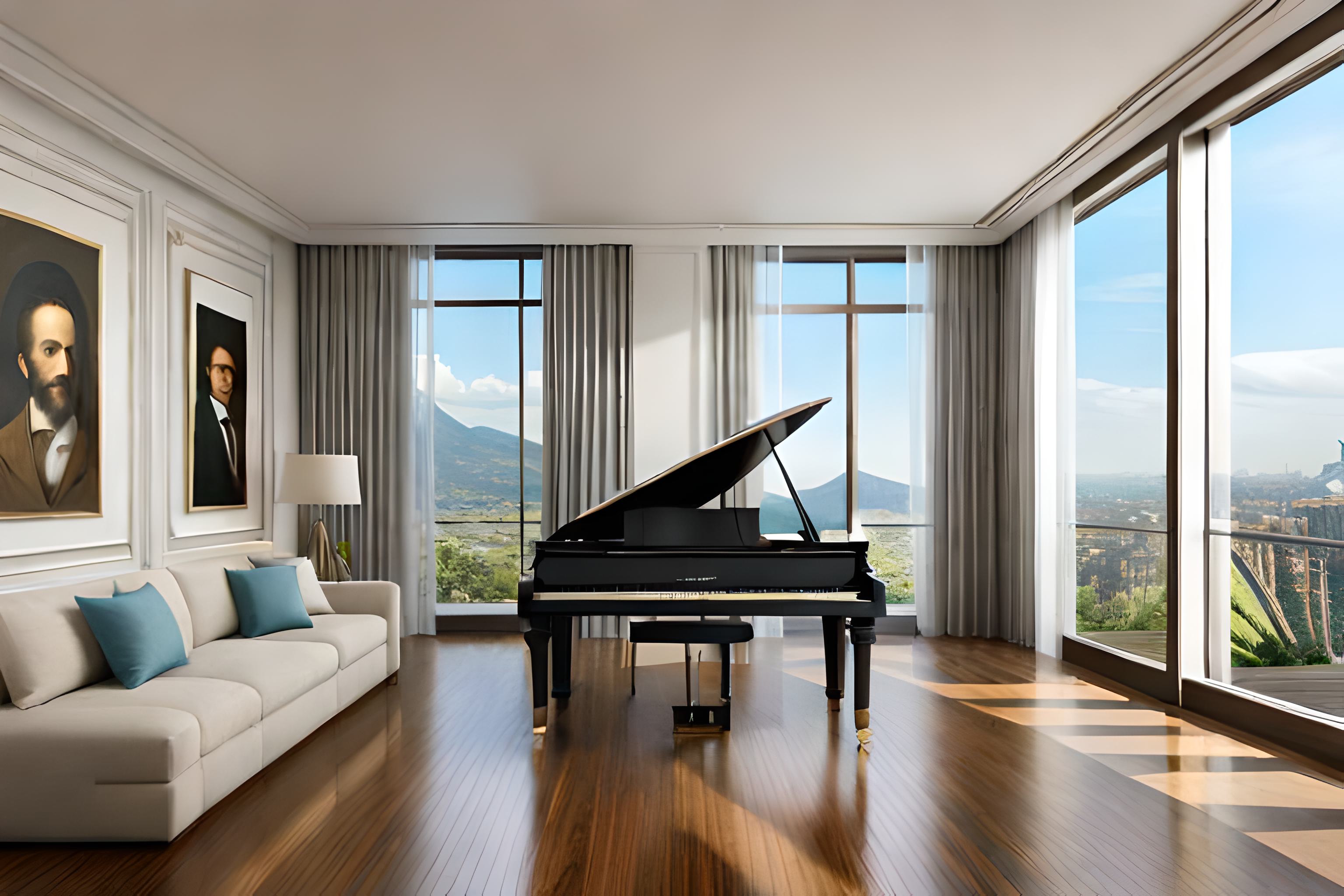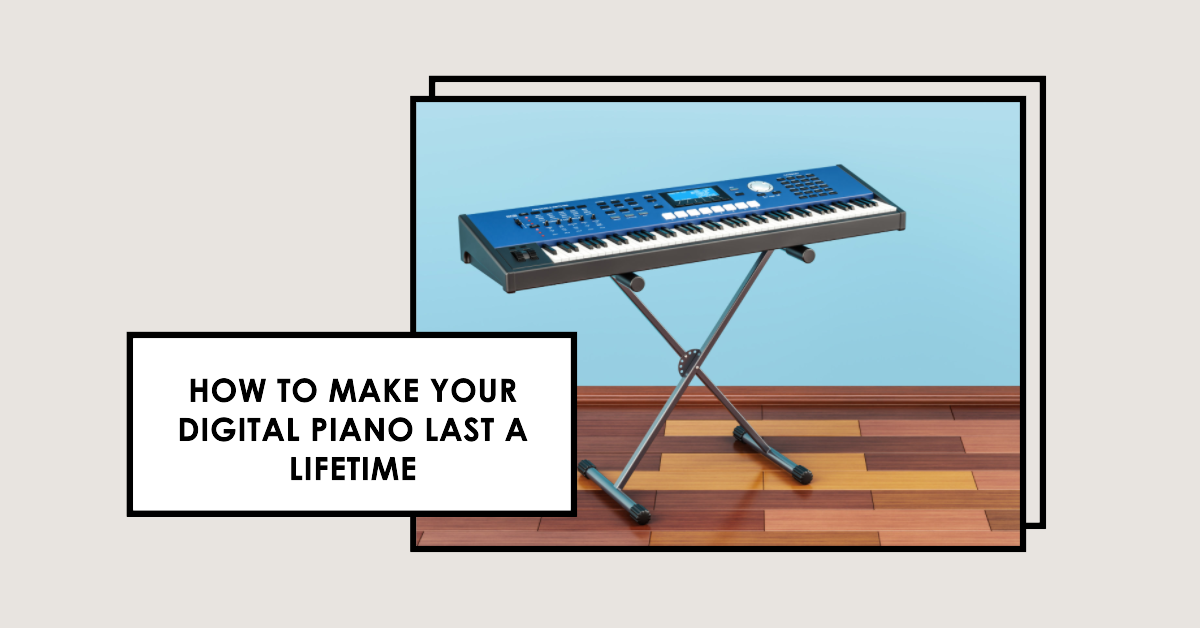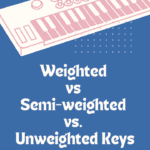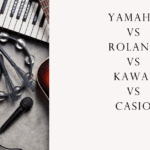Digital pianos have become increasingly popular among musicians, music enthusiasts, and hobbyists around the world. A digital piano is an electronic keyboard instrument that emulates the sound and feel of a traditional acoustic piano. Unlike acoustic pianos, digital pianos are more portable, durable, and affordable.
However, with these benefits come a few potential downsides as well. While digital pianos offer convenience and versatility, they may not always last as long as their acoustic counterparts.
Definition of Digital Pianos
A digital piano is an electronic musical instrument that uses synthesized or sampled sounds to reproduce the sound of a traditional piano. This innovative device was first introduced in the 1980s and has since undergone numerous advancements to improve its quality and functionality.

Digital pianos come in various models with different features such as weighted keys to simulate key action like that of an acoustic piano and touch sensitivity for varied volume levels. The range of features on different digital models varies significantly from basic entry-level options to high-end professional-grade options that cater to more advanced players; however, all digital pianos use some form of technology including speakers or headphones to produce sound waves.
Importance of Knowing How Long They Last
As with any other musical instrument or equipment investment you make, it’s important to know how long your purchase will last you in order to ensure maximum return on investment. In addition, knowing how long your musical instrument will last can help you make informed purchasing decisions when it comes time for repair or replacement.
The lifespan of a digital piano can vary depending on several factors including quality construction materials used during its production process; frequency and intensity level at which it is played; attention paid towards proper maintenance practices like regular cleaning & dusting; proper storage when not in use; avoidance from extreme temperature and humidity conditions and more. By understanding these factors, you can ensure that your digital piano lasts as long as possible and keeps you playing beautiful music for years to come.
Factors Affecting the Lifespan of Digital Pianos
Quality of Materials Used
The quality of materials used to manufacture a digital piano has a significant impact on its lifespan. High-quality components, such as the keyboard mechanism, sound engine, and amplifiers, can last for years without requiring any repairs or replacements. On the other hand, low-quality materials can wear out quickly and may need replacement within a few months.
When choosing a digital piano, it is essential to look at the quality of its components and construction. This is particularly important if you plan to use your instrument frequently or are purchasing it for professional purposes.
Frequency and Intensity of Usage
Another factor that affects the lifespan of digital pianos is how often and how intensively they are used. If you play your instrument frequently or for extended periods each day, it may wear out faster than one that is only played occasionally. Additionally, if you play your digital piano at high volumes or with a heavy-handed playing technique, you may put more stress on its internal components, which can lead to premature wear and tear.
Maintenance and Care
Proper maintenance and care are crucial factors in extending the lifespan of your digital piano. Regularly cleaning your instrument with a soft cloth can help prevent dust buildup from clogging keys or other mechanisms.
It’s also important to keep your piano away from extreme temperatures or humidity levels that could damage its internal components. Professional maintenance services such as tuning and repair should be carried out by qualified technicians who have experience working with digital pianos.
Regular maintenance checks will ensure that any issues are identified early before they become more severe problems that could affect the longevity of your instrument. Understanding these factors affecting the lifespan of digital pianos will help you make informed decisions when purchasing a new instrument while ensuring proper maintenance to extend its lifespan.
Average Lifespan of Digital Pianos
Digital pianos have increasingly become popular alternatives to acoustic pianos, especially for those who want the feel and sound of a piano without tuning and maintenance. One common question asked by potential buyers is: how long do digital pianos last? While there is no definitive answer to this question, there are factors that affect the lifespan of digital pianos.
Statistics from manufacturers and industry experts
According to most manufacturers and industry experts, the average lifespan of a digital piano ranges from 10 years to 20 years. However, some high-end models can last longer than 20 years if they are well-maintained.
The lifespan also depends on how frequently you use the instrument and how well you take care of it. It is essential to note that some brands have better longevity records than others.
Therefore, it is advisable to consider purchasing a quality digital piano from reputable brands such as Yamaha, Roland, Kawai or Casio. These brands often produce durable instruments with advanced features that support extended lifespans.
Differences between entry-level, mid-range, and high-end models
The average lifespan of digital pianos may vary depending on their price point or level. Generally, entry-level models tend to last shorter than mid-range or high-end models because they often use less expensive materials in their construction.
Mid-range models typically fall within a price range of $1000-$3000. They offer more advanced features such as weighted keys or hammer action mechanisms that mimic the feel of an acoustic piano.
Mid-range models are more durable than entry-level models because they use higher-quality materials in their construction. High-end digital pianos usually cost above $3000 and offer top-of-the-line features like full wooden keys or soundboard resonators among other extras.
They are typically made with premium materials meant to withstand daily use and wear and tear. High-end models often have longer lifespans, with some lasting over 20 years.
While the price range of digital pianos may influence their lifespan, it is essential to consider other factors such as build quality, usage frequency, and proper maintenance. Investing in a quality digital piano from a reputable brand can ensure that you enjoy playing your instrument for many years to come.
Signs that Your Digital Piano Needs Repair or Replacement
Malfunctioning Keys or Pedals
One of the most obvious signs that your digital piano needs repair or replacement is if the keys or pedals malfunction. These parts are critical components of any piano, and without them, playing music becomes very difficult.
If you notice that one or more keys no longer work, it could be due to a broken wire or a damaged sensor. Do check out our guide on How To Fix Broken Keys On A Digital Piano/Keyboard.

Similarly, if your pedals don’t function properly, this can also impact your playing experience. You can also read more about fixing sustain pedals guide on Fixing Sustain Pedal on Digital Piano Made Easy.
In some cases, the issue might be something as simple as debris caught under a key or pedal, but in other cases, repairs may be necessary. If you’re experiencing issues with keys or pedals on your digital piano, it’s important to address the problem as soon as possible.
Continuing to play on a malfunctioning instrument can lead to further damage and may even cause injury. To avoid these issues altogether, consider investing in a high-quality digital piano that’s constructed with durable materials and designed for long-term use.
Distorted Sound Quality
Another common issue with digital pianos is distorted sound quality. If you notice that your instrument sounds tinny or muffled when you play it back through headphones or speakers, there could be several reasons behind this problem.
For instance, it may indicate an issue with the internal speakers of your piano – these can sometimes become clogged with dust and debris over time. Alternatively, the distorted sound quality may arise from problems with connections between various components of your piano (such as cables), which can result in electrical interference that affects sound quality.
Software malfunctions within the instrument itself can also cause distortion – for example, if the audio files were not encoded in an appropriate format. If these issues persist even after cleaning everything properly and ensuring all connections are tight then it is possible there is a hardware failure with your digital piano.
Unresponsive Buttons or Controls
Unresponsive buttons or controls can also be a sign that your digital piano needs repair or replacement. This is another critical problem that can severely impact your playing experience.
For example, if you can’t adjust the volume on your piano or switch between different sounds, it can be very frustrating and may even make it impossible to play certain pieces of music. To address these issues, you should first check the batteries in any wireless controllers to ensure they are charged.
Otherwise, unresponsive buttons or controls could indicate a more serious issue with the internal circuitry of your piano. In these cases, repairs may be required to get everything functioning again.
If the cost of repair is high then it might not be worth repairing and replacing would be a better option. Any of these three issues are obvious signs that something is wrong with your digital piano and need to be resolved immediately whether it means repairing or replacing your instrument before you continue playing so as not to exacerbate the problem further.
Tips to Extend the Lifespan of Your Digital Piano
Regular Cleaning and Dusting
Like any other instrument, keeping a digital piano clean is important. Regular cleaning and dusting not only ensures that the keys and pedals are free from dust, but it also helps prevent any buildup that can cause damage over time.
To clean the keys, use a soft cloth lightly dampened with water, or a mild soap if necessary. For the exterior of the piano, use a microfiber cloth or soft-bristled brush to remove dust.
It is important to avoid using harsh chemicals or abrasive cleaning tools on your digital piano as this could damage its surface. Additionally, it is important to ensure your hands are clean before playing as excess oils or residue can transfer onto the keys and create buildup.
- Read More: Digital Piano Maintenance Tips
Proper Storage and Transportation
When not in use, it is essential for your digital piano to be stored properly in order to ensure its longevity. Keep it in a safe place away from direct sunlight or extreme temperatures that could cause damage to internal components. Always transport your digital piano with care – never drag it across floors or lift it by the speakers – as this could result in physical damage.

If you plan on moving your digital piano often – whether for gigs or frequent relocations – consider purchasing a carrying case designed specifically for digital pianos. These cases typically offer extra protection against bumps and drops while making transportation easier.
Avoidance of Extreme Temperatures and Humidity Levels
Temperature and humidity levels can greatly affect the lifespan of your digital piano’s internal components over time. Ideally, store your instrument in an environment that remains consistent at all times – around 68-77 degrees Fahrenheit (20-25 degrees Celsius) at around 50% humidity if possible.
Avoid placing your instrument near windows where temperature fluctuations can occur throughout the day due to sun exposure. If you live in an area with particularly dry or humid weather, consider using a humidifier or dehumidifier to keep the air consistent.
By following these tips, you can extend the lifespan of your digital piano and ensure that it stays in top condition for years to come. Remember, investing in a quality instrument is only half the battle – proper care and maintenance are essential for keeping it sounding great.
Conclusion
Recap on the Importance of Understanding How Long Digital Pianos Last
In this article, we have discussed the various factors that affect the lifespan of digital pianos, including the quality of materials used, frequency and intensity of usage, and maintenance and care. We have also explored the average lifespan of digital pianos in different price ranges and outlined signs that indicate when your instrument may require repair or replacement.
Understanding how long your digital piano will last is essential for making a wise investment and ensuring that you get the most value out of your purchase. By taking proper care of your instrument, you can extend its lifespan and continue to enjoy its beautiful sound quality for years to come.
Final Thoughts on Investing in a Quality Instrument for Longevity
While cost is always a factor when making any purchase, it is important to keep in mind that investing in a high-quality digital piano is essential for longevity. Cheaper models may seem like an attractive option at first but are likely to break down faster due to their inferior construction materials. In contrast, high-end digital pianos are designed with more durable components that can withstand frequent use over an extended period.
As we have seen throughout this article, proper maintenance and care play a significant role in extending the lifespan of your instrument. Regular cleaning and dusting, proper storage and transportation, as well as avoiding extreme temperatures or humidity levels can ensure that your digital piano stays in excellent condition for many years.
Understanding how long digital pianos last is crucial for making informed purchasing decisions and taking proper care of your instrument. By investing in a quality model and following best practices for maintenance and care, you can enjoy beautiful music from your digital piano for many years to come.





